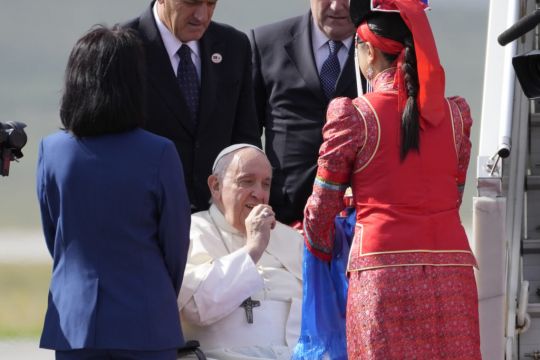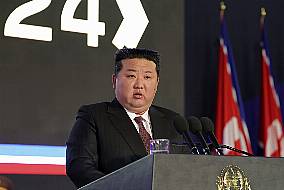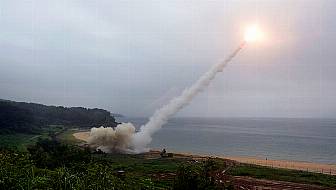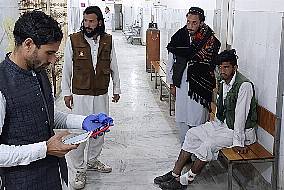Pope Francis arrived in Mongolia on Friday on a visit designed to encourage one of the world’s smallest and newest Catholic communities.
It is the first time a pope has visited the landlocked Asian country and comes at a time when the Vatican’s relations with Mongolia’s powerful neighbours, Russia and China, are again strained.
The Pope arrived in the capital Ulaanbaatar after an overnight flight which passed through Chinese airspace, affording a rare opportunity to send a note of greetings to President Xi Jinping. Vatican protocol calls for the pope to send such greetings whenever he flies over a foreign country.
In his message to Mr Xi, he expressed “greetings of good wishes to your excellency and the people of China”.
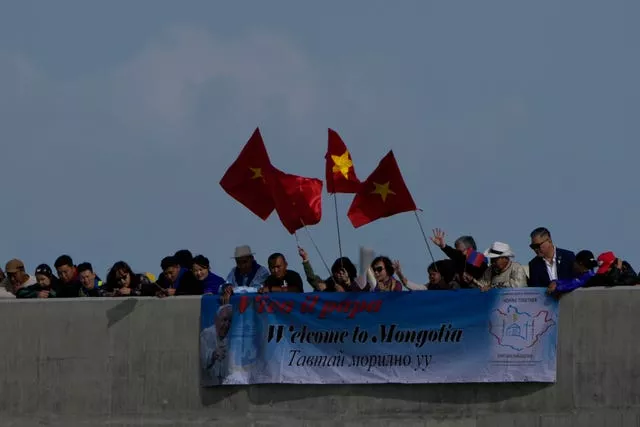
“Assuring you of my prayers for the wellbeing of the nation, I invoke upon all of you the divine blessings of unity and peace,” he said.
Upon arrival Pope Francis, who uses a wheelchair, was met on the tarmac by helmeted honour guards along with Mongolia’s foreign minister and was offered a taste of dried yoghurt from a woman in traditional dress, in a sign of welcome.
He made no public comments. Along with priests and others gathered on the tarmac, several dozen watched his arrival from the airport terminal.
Speaking to reporters en route to Mongolia late on Thursday, Pope Francis said he was looking forward to visiting the country.
“There are only a few inhabitants — a small people, but a big culture,” he said aboard the ITA charter plane.
“I think it will do us good to try to understand this long, big silence, understand what it means but not intellectually, but with senses.”
He added: “Mongolia, you understand with your senses.”

The visit will include official meetings with the Mongolian president and prime minister, as well as a speech before Mongolian government, cultural and business leaders, followed by Pope Francis’ first encounter with the bishops, priests and nuns who form the backbone of a tiny Catholic community of 1,450 which has only been in existence for a generation.
While Christianity has been present in the region for hundreds of years, the Catholic Church has only had a sanctioned presence in Mongolia since 1992 after the country shrugged off its Soviet-allied communist government and enshrined religious freedom in its constitution.
The Holy See and Mongolia have had diplomatic relations since and a handful of missionary religious orders, including Mother Teresa’s Missionaries of Charity, have nurtured the tiny community through its first three decades of life.

Four Missionaries of Charity sisters run a nursing home on the northern outskirts of Ulaanbaatar with a capacity of 30 beds.
There, they provide care for elderly people with mental or physical disabilities, or who are homeless, undocumented, or otherwise ostracized by their families.
Sister Jeanne Francoise said it was an honour Pope Francis was coming to Mongolia, saying she had seen him once before when she was living in Rome but that it was never as “close” as it would be in Mongolia.
The Pope has long praised the work of missionaries and has tried to reinvigorate the missionary focus of the church at large by visiting them and encouraging their work.
